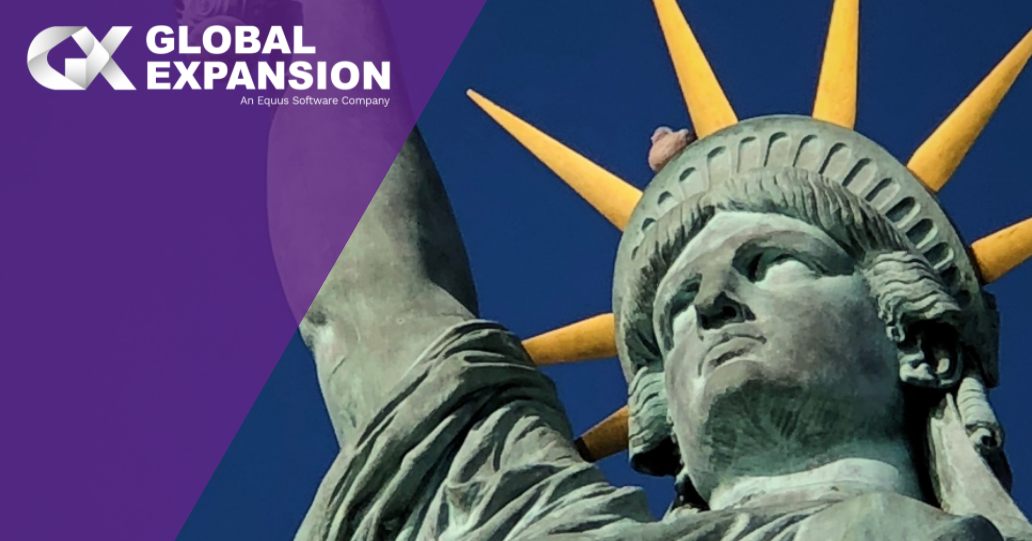25 | 06 | 21
When hiring employees overseas, this is what American organizations need to be aware of.

American companies choose to hire talent overseas in order to capture new business opportunities, from new markets to new audiences and distribution channels. But there are distinct legal and logistic considerations to satisfy in order to make that hire completely successful.
In this blog, we will highlight the key things an organization needs to do. This is the checklist for American companies hiring overseas. Businesses can use the following items to guide them in overseas hiring, giving the right procedures for those HR departments that are unsure where to start or have limited knowledge of legal requirements when hiring overseas.
The US Department of Labor has a mandate to protect worker’s rights and opportunities, so companies looking to hire overseas will have to apply for certification. Essentially, a business needs to prove that there are insufficient qualified U.S. workers who are willing to perform the job in question.
A business needs to:
This is somewhat similar to a home-based hiring process, but will include different places to advertise the job and different cultural considerations.
Jobs can be advertised on the following websites:
Keep in mind that a number of these sites charge for posting job vacancies.
There are a number of different things to consider in comparison to hiring home citizens. For example, the hiring process may take much longer as the planning and legislative requirements can take a lot more focus and commitment due to their relative complexity.
Similarly, international resumes may differ in content, tone and even language from US resumes, meaning that US companies will have to learn to identify the best candidates from unfamiliar resume styles.
There are ways of ensuring a more streamlined process for hiring global talent, such as working with dedicated recruiters, HR specialists or Global PEO services.
In some cases, a candidate will be hired abroad and then move to the US. This means a visa will be needed. A business will need to use Form I-9, issued by the US Citizenship and Immigration Services. Form I-9 will be used to verify the work authorization of the new hire.
As the candidate may not be in the US already, a business can sponsor a visa application. This takes time and can be risky, so it is worthwhile for businesses to seek professional advice in order to ensure both success and complete compliance.
Sponsoring a work visa includes:
Overseas workers will potentially be liable for tax requirements in both the US and the country they are based in. This can be an area of great contention for HR and finance departments, who may be confused about what applies in the foreign jurisdiction - especially if they have little to no experience with these regulations.
To begin, a foreign worker needs to apply for a social security number with the Social Security Administration (SSA) which is then given to the hiring company. In most cases, foreign workers will be subject to the same payroll taxes as their US counterparts.
Furthermore, those employees that are working from their home countries will need to complete Form W-8 BEN, which is also known as the ‘Certificate of Foreign Status of Beneficial Owner for United States Tax Withholding and Reporting (Individuals)’.
Additionally, employees will also have to complete Form W-2 so that the I-9 Form can be checked by ICE.
Foreign employees will evidently require a salary. Now, overseas payments can be complex, subject to multiple sets of transboundary legislation and the somewhat fickle nature of exchange rates.
For employees that are working in foreign countries, organizations can use remote payment options. However, they must also weigh up the pros and cons of these services, as remote payment systems can:
Alternatively, some businesses have been using Professional Employer Organizations to act as Employers of Record within a foreign location, who handle payroll, taxation and benefits in-country.
Global PEO services and support are fast becoming the go-to option for organizations wanting to experience quick, uncomplicated and compliant expansion and setup within foreign countries. To learn more about these valuable services, explore our resource.
From managing a global workforce to maintaining compliance with the vast array of complicated and unfamiliar regulations an organization might be subject to in new countries, Global PEO services are undeniably valuable.
But just how valuable is a good question to answer. In our detailed resource, readers can discover just how a Global PEO supports companies as they grow.
Click the link below to find out.